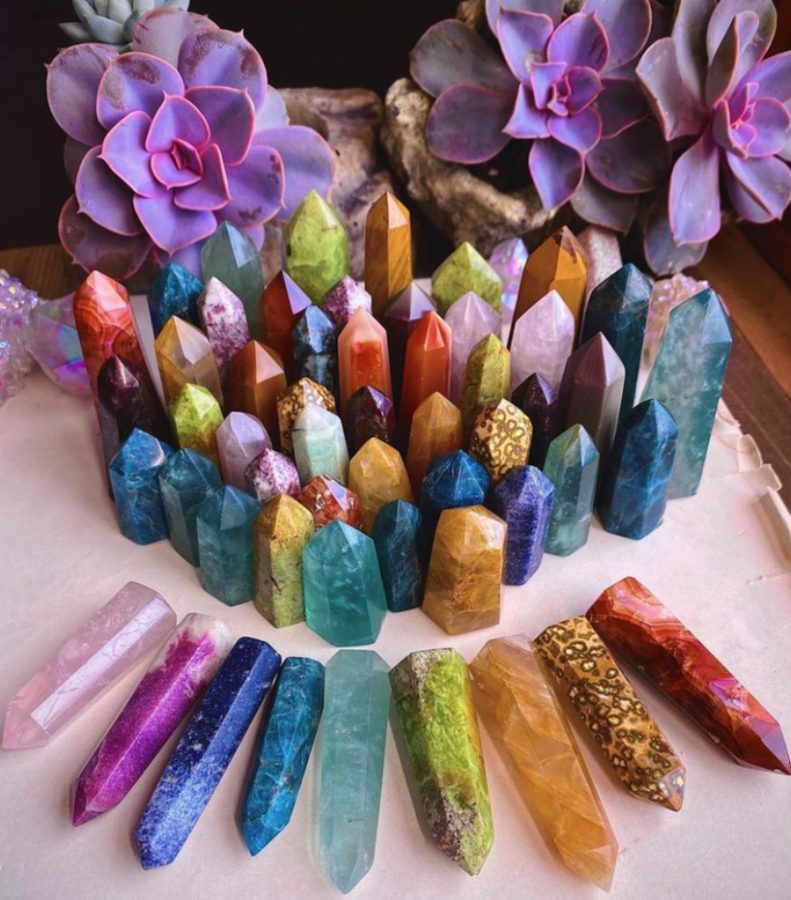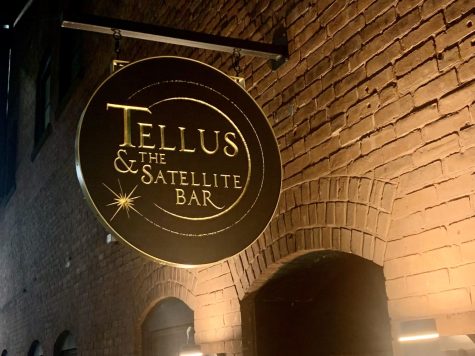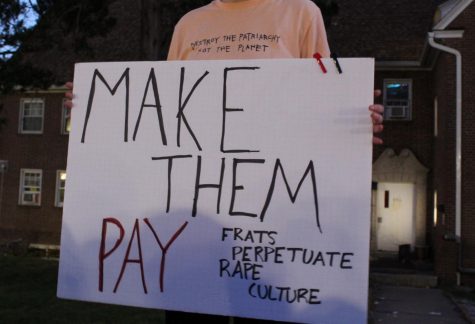Five ethical crystal shops to keep your spiritually sustainable
The corruption of crystal mining isn’t all love and light
Those beautiful amethyst, rose quartz and obsidian crystals sitting around your room or popping up on your Instagram feeds are tainted, and no amount of salt or incense or moonlight can cleanse them. Crystal mining violates human rights and climate activism through water contamination, deforestation and child labor, which are not very “love and light.”
According to the New Republic, some crystals are byproducts of mining metals like gold and copper. These industrial metals are farmed by large-scale mining companies with a history of inhumane labor practices and environmental destruction. The environmental nonprofit, Earthworks, reports that the two largest copper mines in New Mexico, Tyrone Copper Mine and Chino Copper Mine, contaminate 2 billion gallons of water every year by releasing acid and metal into groundwater. These mines have also sold “healing” crystals on the side.
Crystal mining is more than a sustainability issue. In 2019, the Guardian reported that the U.S. Department of Labor and the International Labour Organization predicted that 85,000 children work in the mines in Madagascar, which holds a huge selection of crystals from tourmaline to carnelian. Most of these mines are family-owned rather than big companies. The same article also states that it’s normal for a miner to sell a 50-kilogram crystal for less than a dollar. On her podcast Coffee and Cauldrons, tarot reader, shop owner and witch, Robyn, admits that crystal sellers will sometimes mark the price of their crystals up to 200%, so that tumbled crystal that’s listed for $2.50 was bought for 83 cents.
Polishing crystals pose their own dangers. Workers inhale the fumes and chemicals used to polish the rocks, as well as the rock particles that come off the rocks themselves. According to this Rock and Gem article, rock dust can cause micro-cuts in lung tissue and cover the lining of the lungs and block the flow of oxygen. Those beautiful green and blue crystals, like malachite and turquoise, contain copper oxide, a compound that breaks down the nervous and endocrine systems. Many of the negative effects of polishing crystals can be avoided with the proper equipment, but these expensive appliances are unlikely to be in big mining companies’ facilities.
Big crystal sellers like Energy Muse do not release any information about how their products are mined, which raises red flags for evaluating ethics and sustainability behind production. Even if you asked a crystal seller where they source their crystals, it’s unlikely that they will have the answer. Most crystal shops buy their stock at crystal shows, like the Gem, Mineral and Fossil Showcase in Tucson, Arizona. Crystals come from all over the world, and sellers do not always disclose the mine the crystals came from.
If all of this left your stomach in a million knots or triggered your gag reflex, then we are on the same page. When I found out the truth behind crystal healing a year ago, I became dedicated to finding sustainable and ethical crystal shops, as well as building up the best practices to getting crystals.
In reality, the best way to avoid unethical crystals is to find your own: get quartz from a local riverbank or find a mine that allows you to pan through their debris (a great family vacation). The second best way to get crystals is second-hand: go onto Depop, eBay auctions or Instagram live stories and buy from collectors who have a surplus.
However, if none of those options work, I have spent the past year developing a list of crystal shops that pass the vibe check. Here are my top 5 ethical crystal shops:
There is no other crystal shop as transparent as Moonrise Crystals. Started by geology professor and textbook writer Julie Abouzelof, every step of the crystal process is listed, from the number of hands the crystal has passed through to Abouzelof’s own personal relationship with the source.
While not as transparent as Moonrise Crystals, Spirit Nectar offers a larger variety of shapes and sizes of crystals while still sourcing ethically. Marti Gutfreund started her crystal business soon after Gutfreund’s brother started a sustainable and ethical superfood business, giving her intimate access to small crystal sellers, family-owned mines and fair trade crystals.
While usually selling in bulk is an ethical crystal red flag, Beyond Bohemian is very committed to supporting small businesses and crystal co-ops that practice the least invasive mining practices. Their mission statement says “Beyond Bohemian builds global relationships with small family-owned mines who use their businesses in ethical ways to help and support others in their communities through job creation, improving local infrastructure and environmental preservation.” I also appreciate how the country of origin and mining practice is listed in the description of each crystal.
Denny Toazza grew up in a mining town near Curvelo, Brazil. He now sells the crystals that his friends or neighbors mine and polish at better prices than what the crystal sellers expect. These pieces are expensive, but these crystals are the highest quality amethyst, citrine and quartz.
A Black-owned business that always lists the crystal’s country of origin, Peach and Pixie have beautiful crystals and stunning bracelets.
Email Emilee Klein at [email protected]

"Our job as journalist is not to provide balance, it’s to provide truth." - Nikole Hannah-Jones.











